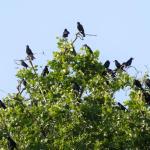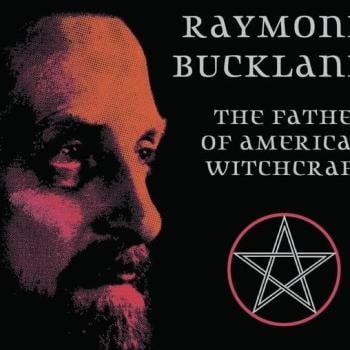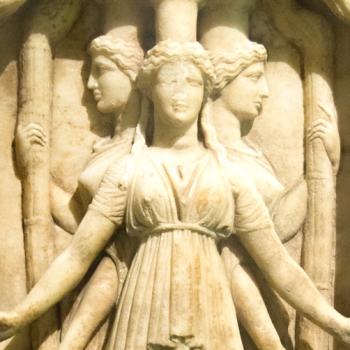Post-Yuletide can be a little blah, so how about some questions from friends and readers? In this edition of the mailbag I tackle recent trends in Paganism that would astonish stalwarts such as Gerald Gardner & Doreen Valiente. Plus questions about the most influential non-Wiccan Witch, Pagan festivals, and just how much I love Doreen Valiente poetry.
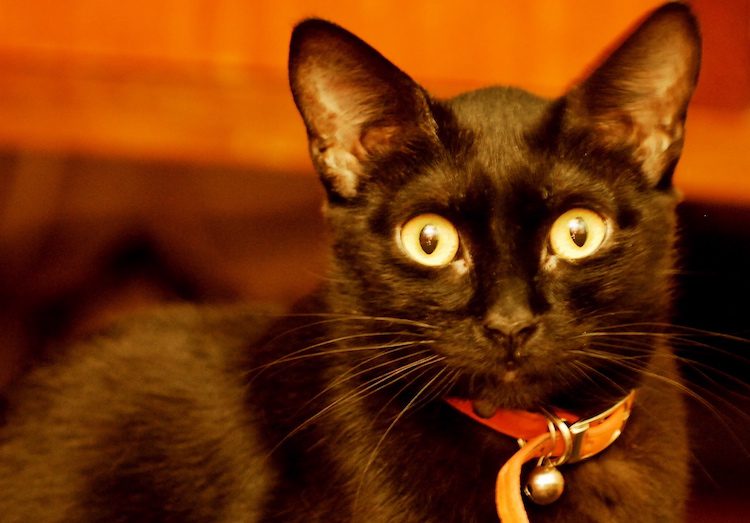
From Jack Chanek author of Qabalah for Wiccans:
What’s something about the landscape of Paganism today that you think would astonish and delight early Pagan figures like Gardner or Valiente?
Frederic Lamond, who joined Gerald Gardner’s coven in 1957, described Gardner as “an old man in a hurry,” a phrase that has always felt apt to me. We will never know for sure if Gardner invented Wiccan-Witchcraft or inherited it from an earlier group, but one thing that can’t be denied is how passionate he was about the Craft over the last fifteen years of his life. From 1950 to 1964 every aspect of Gerald’s life was focused on sharing his version of Witchcraft with as many people as possible.
Unlike many who shared (new or reimagined) spiritual traditions during the same time frame, Gardner didn’t profit by spreading Witchcraft. There were no Witchcraft correspondence courses, or offers of initiation for a certain dollar amount, Gardner’s one and only goal was the survival and spread of his movement, and he succeeded admirably. While the amount of initiated Wiccans in the 1950’s and 1960’s in both Europe and the Americas was quite small, Gardner laid the groundwork and planted the seeds.
Today Witchcraft is ubiquitous. Images of it are impossible to escape from, and you can find Witchcraft books in boutiques and on Walmart’s website. While Wicca bashing is a pretty popular sport today, many of the people who do that bashing share rituals and ideas that come from Wicca. Where am I going with this? I think Gardner would be delighted by how strong his Craft has grown, he certainly didn’t want to hide Witchcraft under a cauldron, he wanted it front and center in society.
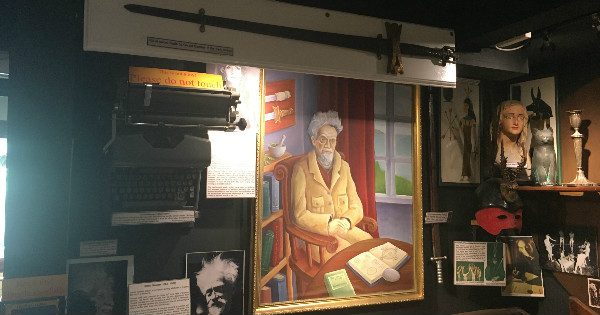
I know that some people out there will argue that Gardner would be horrified that a non-initiatory cousin of his original Craft has become the dominant strain of Witchcraft in the Western World, but I disagree. Gardner could be stubborn and pig-headed, but also showed an ability to change and adapt when needed. If Gerald from 1959 were to magickally show up today he’d probably be confused for a bit, but I think he’d come around.
As for Doreen Valiente (whom I share a birthday with, January 4, thanks for asking), I always saw her as a huge proponent of a United Nations of the Craft, meaning she loved all the various strains of Witchcraft which emerged (or re-emerged) during her lifetime. While often thought of as a Gardnerian Witch, Doreen got involved in any tradition that would have her! She loved it all, and saw it all fitting together in some way. (I wish more people saw the world the way Valiente did!)
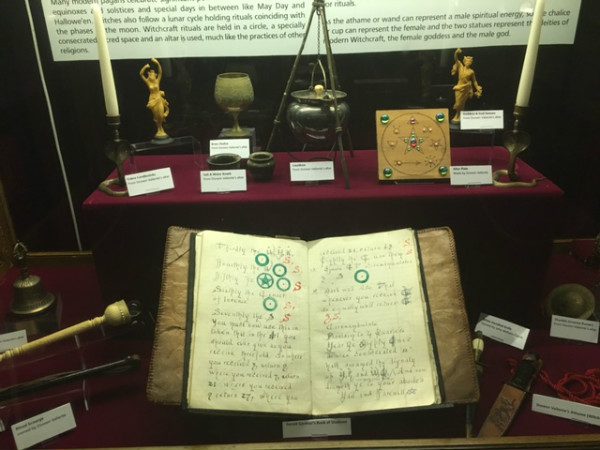
If Doreen were alive today, she’d probably be on Instagram creating the best pictures and reels of a working altar, and asking lots of questions about people’s various practices. She would be absolutely thrilled by all the various traditions and types of Witches in the world today, probably more than she could have ever imagined back when she was initiated in 1953.
I think Gardner and Valiente would both also be astonished by:
-How easy it is to get both books and materials. We can get just about anything today with a few clicks of a button, or a quick drive across town. There were occult shops in the 1950’s, but not mass produced statues, cauldrons, and other sorts of bric a brac.
-Pagan gatherings! Hundreds and even thousands of magickal people all in one place at the same time, sharing a common language!?! Hell yeah. That was impossible to fathom even in the 1960’s and for much of the 1970’s.
-Pagan music! Songs about the Goddess? Chants and melodies known by tens of thousands of people? The idea that there would be a true-culture surrounding Witchcraft would have been truly incredible for Gardner, less so for Valiente, only because she witnessed some of it coming to pass before her passing in 1999.
Speaking of events Michael R. writes:
How does the crosspollination at pan-pagan events impact neo-paganism? How does that change with virtual events?
I think that impact was much larger twenty or thirty years ago, thirty years ago festivals and ‘zines were our “internet” so to speak. We shared songs, stories, and ideas around bonfires and through those shared activities built community across states and regions. Sure, the amount of people who actually went to such gathering was a percentage of a percentage, but those who did go to events returned home with new tools for the tool box.
(Books are important, and as an author I like it when you read them, but the publishing process is SLOW, festivals were much faster when it comes to sharing ideas.)
Today it’s not necessary to visit a festival (or read a magazine) to acquire new ideas. The only thing one has to do is jump on social media, a place where everyone is an expert. Festivals were not always well cultured, there are bad speakers with bad information, but generally there was a little bit of vetting. Now a days there is no vetting at all, people are experts because they edit Tik Tok videos better than others.
All of this is a very long way of saying festivals are not as important as they once were, but they still serve a greater purpose: it’s harder to be a dick when you are looking someone in the face. I think we are simply nicer when we aren’t hiding behind keyboards, and realize that the person we are saying shit about is a flesh and blood human being. This is not an excuse to justify bad behavior, but there’s so much meanness in social media, it’s harder to be mean in flesh and blood public.
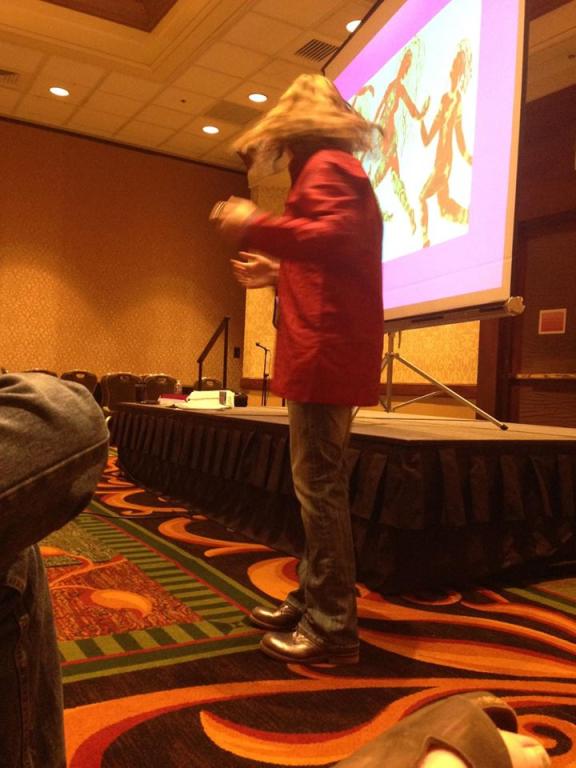
(Looking at that image above stirs some memories. It’s now been over two years since I’ve been to a traditional Pagan event with workshops and rituals. I’ve gotten to do SOME stuff, but I miss 1000 Pagans in a hotel or at a campground!)
If there’s one thing that evolved during the pandemic that I like, it’s virtual events. I don’t like them very much as a speaker (we will get to why in a minute), but I like that they are more affordable, require no traveling (and the money that goes with that), and one can go to as many workshops as they want over a weekend. Miss the live show? Watch it on tape! That’s great.
As a speaker though, I feel very cut off from the people I’m speaking to. Everyone is generally muted so I can’t tell if the joke I told landed, or if people are snoring. Sometimes there are chats going on during the talk, but it’s hard to look at the chat sometimes unless I’m on a panel. So with online events we lose the back and forth with speakers and other attendees, and I think that makes them very different than in-person events.
Looking over your question I like how you included the phrase “pan-pagan.” The online world allows us to retreat into our own separate bubbles, which means Druids and Witches and Ceremonial Magicians don’t all hang out as much as they used to. Pan-Pagan events allowed us to see our similarities. As I’ve found myself retreating further and further into the Witch-bubble, I find that fewer and fewer people know who John Beckett is.
From Tyson Chase who used to write on the Agora:
Outside of Wicca, who do you believe had the largest impact on Modern Witchcraft?
So I’m going to disqualify most Witchcrafts than cast a circle, call the quarters, and invoke pagan deities, because that’s essentially Wicca. That narrows things down a little bit, so my two choices are Robert Cochrane and Paul Huson, and I can make a case for both, and talk myself out of either one too. But I’ll start with Cochrane.
Cochrane was one the first Witches whose ritual system was unrelated to that of Gerald Gardner, and bothered to write about their ritual system and invite people to partake in rituals. Cochrane never wrote a book, but he was published in a few periodicals in the early 1960’s, and years after his death much of his correspondence with Witches and other occultists was shared, published in books, and posted online. Cochrane was the first person today we’d probably label a “Traditional Witch,” though he was influenced by many of the same modern influences as Gardner (sorry, but it’s true, if you can’t see Robert Graves’ The White Goddess in Cochrane’s work you aren’t looking.)
In 2022 Cochrane is far more influential than he was in 1966, the year he passed. That influence can be both good and bad too. Cochrane was problematically adversarial to Gardner-style Witches, those individuals weren’t all peaches, but they never suggested meeting Cochrane’s Clan of Tubal Cain for a “night of the long knives.” (That’s messed up!) That level of antagonism remains among some Traditional Witches who love to crap on anything similar to Wicca. (The key word here is SOME, most Trad Witches are pretty great, and I count many among my close friends.) Cochrane also was deliberately obtuse with his writing, an trend that continues in many Traditional Witchcraft books.
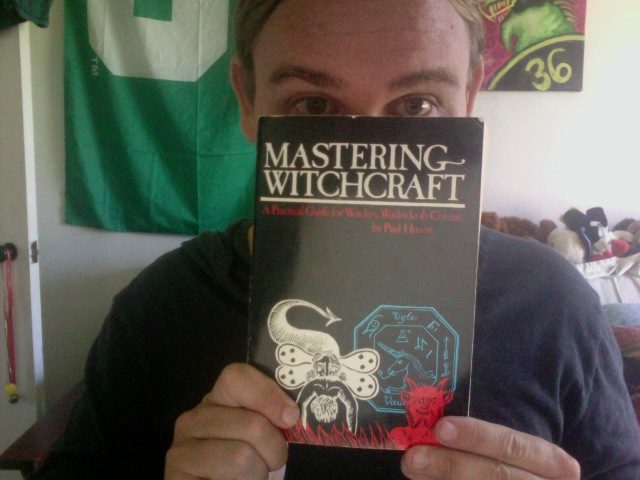
The first person to share a really workable system of Witchcraft in book form that was really different from that of Gardner was Paul Huson, who released Mastering Witchcraft back in 1970. For many Witches, Mastering Witchcraft was their first ever Witch book, which means it had a HUGE impact on their practice. Huson’s book is the only Witchcraft book continually available in print for fifty years now! That’s AMAZING, and illustrates how his work has spoken to several different generations.
Because Cochrane never wrote a book, I’m guessing Huson was the more influential of the two. Though I will point out that the last chapter of Mastering Witchcraft is essentially a Wicca 101 primer, which I’ve always found funny since so many people use Huson’s work to deride Wicca. Mastering Witchcraft for instance contains one of the earliest printings of Doreen Valiente’s Charge of the Goddess, which leads me back to Doreen Valiente and a question from Dawn M.:
I’m curious about whether or not Doreen Valiente’s poetry is an inspiration to you, or if any of her writing has inspired parts of your practice?
Doreen is my lodestone. I love her poetry! When I have nothing for my coven to do, I make them chant and dance to Doreen Valiente poetry. All right campers, it’s time for the Witches Rune! Her version of the Charge of the Goddess is perhaps my most favorite piece or liturgy (and poetry) ever.
Find Jason Online
My Patreon Starts at Two Bucks!
The Horned God of the Witches
Transformative Witchcraft: The Greater Mysteries
The Witch’s Wheel of the Year: Circles for Solitaries, Circles, & Covens
Raise the Horns on Facebook Jason’s Twitter
Pictures Of Magickal Stuff
Witch With Books Podcast
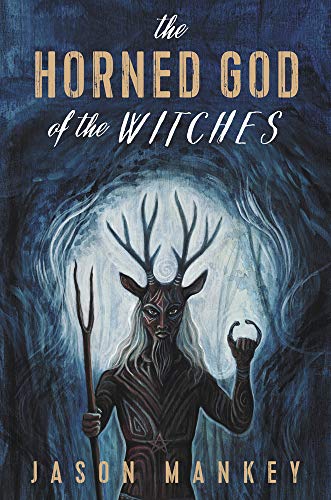
Transformative Witchcraft: The Greater Mysteries
The Witch’s Wheel of the Year: Circles for Solitaries, Circles, & Covens
Raise the Horns on Facebook Jason’s Twitter
Pictures Of Magickal Stuff
Witch With Books Podcast

Raise the Horns on Facebook Jason’s Twitter
Pictures Of Magickal Stuff
Witch With Books Podcast




